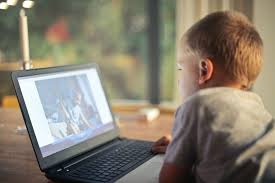As a parent, you bear enormous responsibility for raising your children to be responsible and respectable members of society. You are their first role model; they will look to you for guidance and inspiration as they grow and learn. Being a role model for your children can be difficult. Still, it is critical to their emotional, intellectual, and physical well-being.
In this article, we’ll look at some of the most effective ways to be a role model for your children. When you live your best life, children notice. They form healthy habits and imitate the words, actions, and behaviors that will lead them to a successful future. You can influence your child’s development by being a good role model, from diet to relationships. It is never too early to begin modeling good behavior and healthy habits for your child. Here’s how:

How to be a role model
Put into practice what you preach.
Children learn by example, so practicing what you preach is critical. The most important aspect of being a role model for your children is always saying what you mean and meaning what you say. Walk the walk. Be a person of integrity and worth by backing up your words with visible and concrete action. Actions speak volumes. If you tell your children to be honest, you should be honest. Respect others if you encourage them to be respectful.
Consistency in your words and actions will help your children understand the value of good values and character. Be the change you want to see. At its core, this list is all about modeling the characteristics, values, and behaviors you want to see in your child. Friendship, respect, and tolerance are excellent foundations for your and your child’s lives. Leading your family with honesty and commitment to a healthy physical and emotional lifestyle can be extremely beneficial to your child.
Maintaining Healthy Relationships:

Your relationships will be one of the most influential aspects of your life for your child. Model the relationships you want your child to have with family, friends, and your better half. We have many important relationships, and not all will be pleasant. Perhaps you have issues with your parents, stepparents, brothers, sisters, or ex-wife. Give forgiveness and grace. Seek to be right in your relationships over being right. Make it as difficult for anyone to say anything negative about you. Practice to be the best role model around every one
Take personal responsibility first and be an initiator. Developing social skills is an important part of growing up. Still, you don’t have to be an extrovert to show your child how to have healthy relationships. Be dependable, loyal, and considerate. Demonstrate good manners and regard for others. Children pick up on everything, so being polite and respectful to everyone you meet teaches your child that other people are also important.
Self-Improvement:
Being a lifelong learner is an excellent way to be a role model or model the importance of education and personal growth. Read books, take classes, and pursue your interests. Encourage your children to do the same and support them in their educational endeavors. You can certainly teach old dogs new tricks, to use a cliché. We should always strive for self-improvement. Try new things and broaden your horizons.
Teach your children never to stop growing. There is always something new to learn in this life. Try to learn something new every day. Start with self-improvement when considering how to be a role model. “Taking care of ourselves is also one of the most difficult things for many parents to fit in. And you’re not the only one who benefits from self-care. Children learn by example, and you can teach them about wellness simply by prioritizing your needs.
Be available
Having time for your family is one of the most important things you can do for your children. Make time for them and be involved in their lives. Listen to them when they speak, and be aware of their needs. Being available also entails putting away distractions such as phones or laptops and focusing solely on your child. But how we do it in front of our children has far-reaching consequences. As difficult as it sounds, to be a role model, we must exercise as much self-control as possible in front of our children. Control your temper by biting your tongue. Work it out in the gym or go for a long run if necessary.
Communicate effectively.
Effective communication is essential for developing a strong relationship with your children. Listen to them, ask questions, and demonstrate empathy when they are upset or struggling. Respect and listening should be a way of life in your home. If you want to be a role model, educate your children on developing good self-esteem. Start by showing them respect for who they are and how to listen to their unique thoughts.
Being a role model is a difficult aspect of leadership, but the best leaders listen carefully and speak far less. Open your mind and ears to what your children are saying to you. Use positive language and avoid negative criticism or harsh words when speaking with them. Communication is a two-way street, so encourage your children to express their thoughts and feelings.
Set and achieve goals.
Setting goals and working toward them is an excellent way to teach your children the value of hard work and perseverance. Include your children in the process, whether it’s a personal or family goal. Celebrate their accomplishments and encourage them when they face setbacks. This will help them develop a strong sense of determination and resilience.
Modeling your own motivated behavior is one of the best ways to teach your child how to be motivated, study, and do well in school. Allow your child to observe you as you evaluate your behavior, set goals for yourself, and strive to achieve them. Whether your goals are achieved or not, success or failure, they will notice the process, the work, and the value contained within. Setting goals helps us see where we’re going and how far we’ve come. Implementing and achieving those objectives are equally important.
When our children see us sticking to our plans, it teaches them the value of organization and self-discipline. Assist them in developing their goals and praise them when they achieve them. Make a child understand that goals can be big or small and that everyone has their own definition of success. Teach your children to meet the needs of others.
Work hard.
Developing a strong work ethic is an important life skill for all children. Whether you go to work every day or work from home. Even doing chores as a family is an authentic way to instill a strong work ethic in your children. Do not hide your true self from your children. When appropriate, share your past experiences both mistakes and victories.
Demonstrate to them that vulnerability is a virtue from a position of strength. Bring your children to work with you and show them your daily routine. Status means nothing, but your demeanor and attitude do. Encourage or model independence.
Fostering independence

Fostering independence is critical to helping your children develop a strong sense of self-reliance and responsibility. Encourage them to make decisions and take on appropriate responsibilities for their age and abilities. This will assist them in developing a sense of autonomy and self-confidence. As a parent, the best thing you can do is raise an independent child.
You can teach your child to be their own person by demonstrating independence, commitment to values, and willingness to pursue your goals. Define your own success and let your child define theirs. A healthy skepticism of what’s cool never hurts anyone. With this comes self-esteem. “I truly believe that one of the most important values a child can learn from a role model is how to act and live in a way that promotes self-esteem.
Admit and apologize when you are wrong.
No one is perfect, and it is critical to model the importance of admitting mistakes and apologizing. Encourage their interests and use this model to teach good habits for chores and schoolwork. Show your love and affection. Building a strong bond with your children necessitates showing them love and affection. Tell them you love them, hug them, and show them physical affection.
.This will make your children feel safe and loved, which is essential for their emotional well-being. Show your child that you love them before they gain independence, take on responsibility, and long before they start dating. Make them understand that you respect them and that you love and value each member of your family. Teach them what a happy family looks like and how to have fun, be happy, and love each other.
Seeing and hearing you admit your mistakes, similar to your unmet goals, can be formative for your child. It’s critical to emphasize consequences when teaching responsibility. Even admitting you were wrong can help you learn and apply these lessons more effectively to your parenting.
Modeling healthy habits
Display healthy habits. Modeling healthy habits is critical for your child’s physical well-being. Eating a healthy diet, getting enough sleep, and exercising regularly are all important habits to model. Additionally, keep unhealthy habits away, such as smoking or excessive drinking, as these can hurt your child’s health. Eating well and exercising regularly improves our lives and sets a good example for our children. This is not to say that a parent should go overboard. Still, every reputable expert will tell you that moderation is the key to diet and exercise. Maintain a healthy weight for your age and stage of life.
Volunteering and community service:
Teach them the value of giving back. When you volunteer in the community, you show your children that you care about the world they live in. You can also get your children involved in volunteer work. They also learn to care. Volunteer as a family, donate to charity or find other ways to give back to your community. This will help your children understand that they are responsible for improving the world. Learn new skills.
When you want to teach your children something new, whether how to make their bed or tie their shoes, show them how you do it. Then let them practice on their own. Showing can be a more effective way than telling children to learn new skills. Whether you participate in a community clean-up project, volunteer in the schools, or donate food and supplies to the local food pantry, you are teaching your children that what happens outside your home is important and that giving back is essential to making the world a better place.
Address alcohol and drugs.
Regarding alcohol, drugs, and related behavior. Each family has its own values. Teach your children house rules as they get older, as well as local laws. You may find it beneficial to discuss media representations and your own experiences. Having said that, we’ve also established that children learn more from seeing than from listening. Model healthy habits, and encourage your children to discuss any aspect of your life. Just remember to clarify that while you’re enjoying adult responsibilities, laws and your house rules forbid them. You’re instilling healthy habits in children for the not-too-distant future!
Seek and accept help.
When your child’s teachers, friends, and family can help, you and your child have an incredible resource. They can role model healthy habits for your child and assist you in managing the demands of parenthood so you can take better care of yourself. Teaching children that it is acceptable, even encouraged, to seek help and support from their community is a valuable lesson. It can also lead to them developing healthy and supportive relationships in the same community. Teaching children that it is acceptable, even encouraged, to seek help and support from their community is a valuable lesson.
Demonstrate Social and Emotional Skills:
Consider your emotional and social skills as well. This is because one of the most critical lessons you can teach your child is to respect and care for their emotional health. Fostering self-esteem and self-respect are skills that will benefit children for the rest of their lives. A healthy approach to negative emotions, such as disappointment and anger, is another foundation of maturity. Show your children how to greet others and ask questions when perplexed. Instruct them on how to make new friends and invite others to join in.
As a role model, demonstrate how to manage emotions such as frustration or sadness. When you are upset, angry, or sad, express your feelings to others and encourage them to do the same. Ongoing conversation with your child will be essential to this process. Remember, you don’t have to hide your rage, sadness, or disappointment. On the contrary, your child can learn from seeing a variety of emotions expressed and dealt with healthily.
Deal with technology issues.

Like most parents, you’re concerned about your children’s daily screen time. Whether toddlers watch shows and play online games or teens spend time on social media, every parent is concerned that their children spend too much time on screen. But before you say anything to your kids, consider how much time you spend in front of a screen. Are you a role model to them in managing your screen time? Even if you’re working, answering emails, and doing productive things, you still set an example for them. First, address your technology use, then set some expectations for the kids.
Show respect and instill empathy as a role model:
Every parent wishes to raise children who are kind to others. This goal becomes a reality when you demonstrate respect and empathy in your own life. Respect everyone you come into contact with, and your children will soon follow suit. Always use the words please and thank you; your children will soon follow suit.
Read: https://abundanceandkiddies.com/how-to-raise-more-responsible-children-in-this-dispensation/
Conclusion:
Being a role model for your children necessitates consistent effort and dedication. But by practicing what you preach, being present, communicating, setting goals and pursuing them and others, you will be a good role model to your kids. However, your primary role as a parent is to help shape your children into kind, respectful, honest, and caring individuals. Being a good role model is sometimes the simplest way to accomplish this. This may imply intentionally observing your own habits and making the necessary changes.
Shop children’s winter clothes and sweaters here
Children’s bikes and bicycles here
Home furniture for children here
